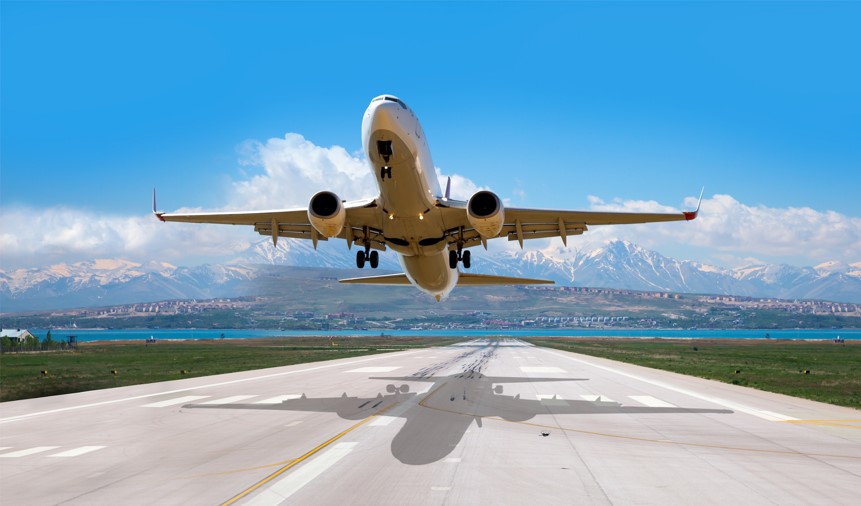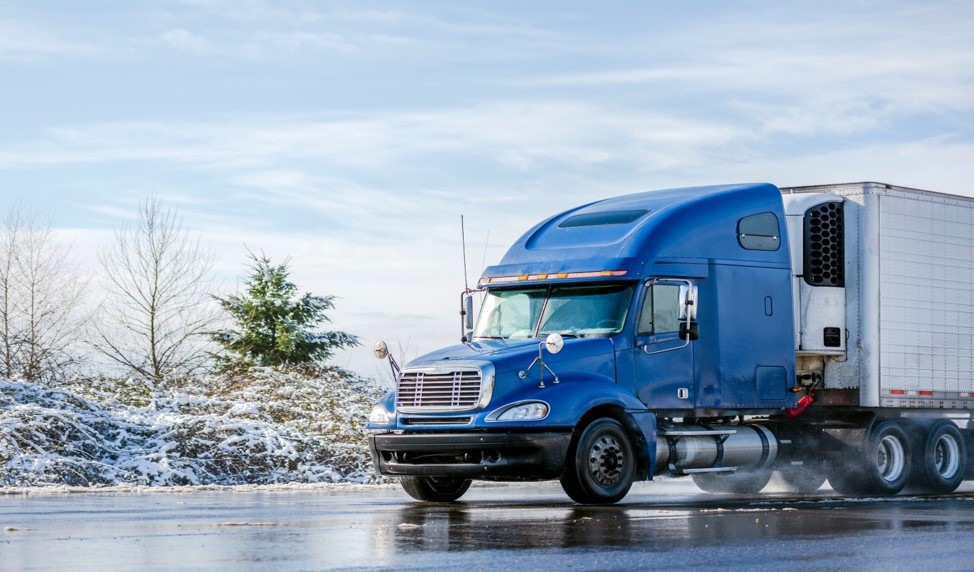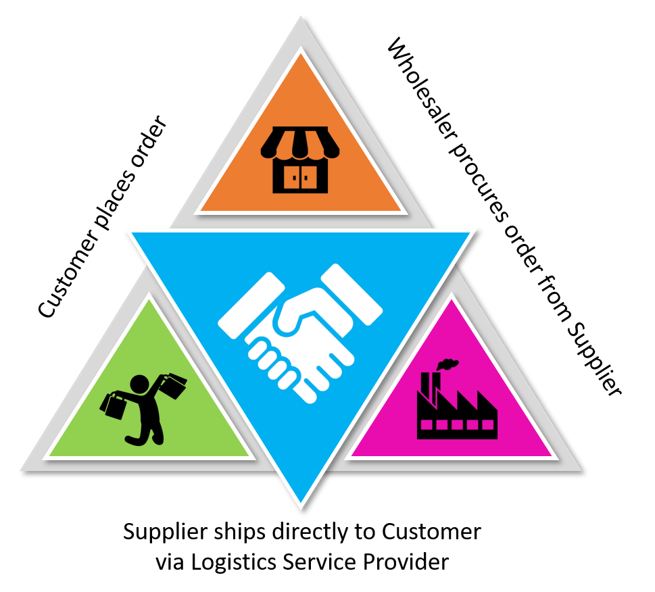
Foreign-to-Foreign Shipments
Reduce your supply chain costs and decrease transit time with OCEANAIR’s Foreign-to-Foreign (F2F) services.
Our knowledgeable F2F team is experienced in all aspects of cross trade. We will advise you of the optimum logistics solution to meet your time and budgetary requirements. Our tailored foreign strategies provide complete control and visibility throughout your shipment’s entire journey, while ensuring your interests are maintained at all time.
From conception to final delivery, your shipment is managed by a single point of contact, through our control tower. We’ll take care of all the details – from booking and document handling, to navigating your freight across customs points, and ensuring compliance with all international regulations – so you can focus on your core business.
Through our extensive global network of trusted partners, we can shipment form your suppliers’ warehouse to your customers anywhere around the globe. Acting as your local representatives, they offer us the ability to provide a global reach with local knowledge and expertise.

Door-to-Door Service
We deliver greater efficiency and competitiveness for our clients by designing flexible foreign strategies – via all modes of transport – that reduce transportation and inventory carrying costs.
To or From Any Location
With our extensive network of partner agents in 190 countries and our long history of industry expertise, we’ll get your shipment where it needs to be, when it need to be there – anywhere in the world.
F2F Services

Ocean Freight Services
- Full Container Load (FCL)
- Less Than Container Load (LCL)
- Out-of-gauge
- Break Bulk
- Project Cargo
- Reefer Service
Air Freight Services
- Air Expedite
- Air Standard
- Air Charter
- Priority & Standard Consolidation
- Overweight & Out-of-gauge
- Hand Carry


Domestic Freight Services
- Full Truck Load (FTL)
- Less Than Truckload (LTL)
- Local Inland Logistics
- Last Mile Delivery
- Project Cargo
- Hot Shot / Ground Expedite
Securing Your Supply Chain
Through our extensive global network of partners, we take all the necessary steps to safeguard your confidential supplier information.
Benefits of F2F Shipments
Supply chain solutions designed for Predictability.

Reduce Supply Chain Costs
by saving on transportation costs and eliminating clearance charges in your country.

Decrease Transit Time
by shipping directly from your supplier to your customer.

Optimize Your Supply Chain
by dealing with only one point of contact from port of loading to final destination.

Secure Your Supply Chain
by protecting the identities of your suppliers and customers.
F2F Shipment FAQ’s
A Foreign-to-Foreign (F2F) shipment is a transaction involving three parties located in three different countries. One of the parties, usually a wholesaler, takes an order from a buyer in another country and procures the goods from a supplier, usually a manufacturer, located in a different country. The wholesaler then arranges to ship the goods directly from the supplier to the buyer, without the consignment passing through the country where the wholesaler is located.
Think about it this way: Your business is located in the U.S. You’re selling a product to someone in the UK, but your product is manufactured in China. With F2F, you buy the product from the supplier in China and ship it directly to the consumer in the UK, without the goods entering the U.S. – saving you the cost of shipping the product twice, bypassing U.S. customs, and avoiding American tariffs on goods from China.
F2F shipments are also known as Cross-Trade, Triangular, or Third-Party Shipments.
The entire F2F logistics process, including transportation logistics, customs formalities, and shipment tracking, is managed by a single point of contact – your logistics service provider, who works in cooperation with their network of trusted partners at origin and destination.
In order to protect your interests and keep prospective buyers from contracting directly with your suppliers, we will use a Switch Bill of Lading. This means the original BoL will be replaced prior to delivery to the buyer with a second bill, called a Switch BoL. On the Switch BoL, the wholesaler’s name will appear as the shipper and all of the details about the manufacturer will be removed.
Switching bills is a very common practice in international trade, where a request is made to substitute the original Bill of Lading issued at the time of shipment with a revised second set of documents, called a Switch Bill of Lading, prior to delivery to the consumer. While there are many reasons to do so, a Switch BoL is usually requested by traders who wish to protect the identity of their suppliers and consignees.
Switch BoLs may be requested for a few reasons, including:
- Changes to the original trading conditions
- The goods have been resold to another party
- The location of the port of discharge has changed
- The seller does not want the consignee to know the identity of the exporter (to prevent the consignee from buying the product directly from the exporter)
- The seller does not want to disclose the actual country of origin to the buyer
Only the following items can be modified in the Switch BoL:
- Shipper name
- Consignee name
- Notify party details
- Description of the cargo
All other details must remain the exactly as they appear on the original Bill of Lading.
As the BoL represents ownership of the cargo, only the company holding the full set of documents – the cargo owner or principal party in interest – may request a Switch BoL. All requests for Switch BoL’s should be made in writing, and a letter of indemnity, signed by the principal party in interest (and counter-signed by a bank, if deemed necessary by the agent), should also be included with the request.
A Switch BoL may only be approved by the carrier or logistics service provider, who will carefully examine the differences between the original BoL and the switched bill.
It is important to note that once the Switch BoL is approved and prior to being released, the initial BoL must be surrendered for cancellation so that there is only one set of documents in circulation.
The carrier will issue the Switch BoL once they receive the initial set of documents, prior to the cargo’s arrival to port.
It is important to note:
- Before releasing the Switch BoL, the initial BoL must be collected and cancelled before the replacement set is produced and issued so that there is only one set of documents in force
- The Switch BoL cannot be released until all the terms and conditions of the first transaction [between the initial seller (manufacturer) and first buyer (wholesaler)] have been legally satisfied. Once payment has been made in full and all trade terms have been satisfied, the carrier will issue the Switch BoL
- A new invoice and packing list should be issued showing the wholesaler as the supplier and the buyer as the consignee to keep consistency with the new Switch BoL as well as to avoid exposing the supplier’s identity
- The commercial sell rate of your product will be taken from the buyer’s commercial invoice upon entry to the destination country, notthe rate shown on the manufacturer’s invoice.
The BoL may be switched anywhere, as long as the carrier, logistics service provider, or their agent has an office or coverage in the country where the Switch BoL is requested.
In most cases, a Switch BoL should be requested no later than three working days prior to arrival at port of destination. However, some shipping lines may require more than three days’ notice for certain destinations; therefore, it is highly recommended to check the deadline with the carrier to avoid incurring additional storage and demurrage charges at the destination port.
Switch BoLs do not contain any references to the original BoL, and there is nothing to indicate that the bill has been switched. That being said, the consignee may ask the carrier whether the bills were switched, and the carrier can, at their discretion, answer the question, although they cannot disclose any further details other than the fact that the bill was switched.
To ensure your shipment goes smoothly, there are a few things you should keep in mind:
- Be sure to tell your logistics service provider if you want your shipment to be neutral (i.e., we will withhold your manufacturer’s details by using a Switch Bill of Lading.
- A Switch Bill of Lading is not valid for all shipments.
- Consider an adequate cargo insurance policy to protect your shipment in the event of loss or damage.
- If shipping neutral, check to make sure your cargo insurance includes coverage for a Switch BoL.
- Understand the benefits of any free trade agreements between the country of origin and the destination country.
- Ensure you use the best incoterm to suit your shipment.
F2F Shipment Process

CALL US TODAY
to see how we can help with your F2F shipping needs.

Sales

Customer Service

Pricing

